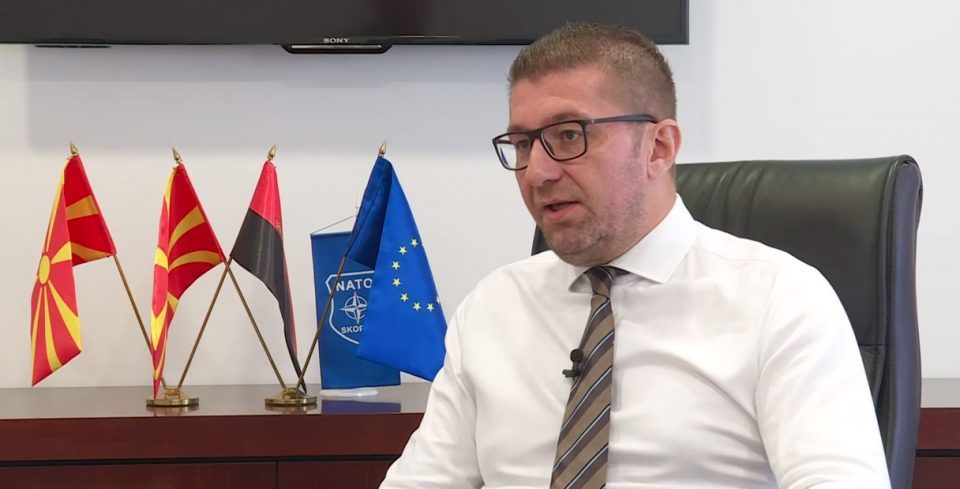While the corruption and crime allegations disgraced Special Prosecutor Katica Janeva are piling high, VMRO-DPMNE leader Hristijan Mickoski also warned against the prosecutor who Prime Minister Zoran Zaev nominated yesterday as the new Special Prosecutor – Vilma Ruskoska.
Zaev was unable to reach an agreement with VMRO-DPMNE over the fate of the Special Prosecutor’s Office, mainly due to the personnel choices, given Janeva’s open partisanship that was apparent even before the corruption allegations. But, without consulting the opposition, Zaev was quick to nominate organized crime prosecutor Vilma Ruskoska, who was also an outspoken supporter of the SDSM led Colored revolution and already has a track record of persecuting opposition officials while disregarding allegations of crime in the ranks of the Government. Ruskoska led the charge in the April 2017 case, which was used by the Zaev regime to blackmail a group of VMRO-DPMNE members of Parliament into voting for the “new name” – “Republic of North Macedonia”, and VMRO-DPMNE has already used her name, and that of judge Dobrila Kacarska, as short-hands for politically staged show-trials.
We spoke out in the past that we have an extremely corrupt Special Prosecutor’s Office under Katica Janeva, and our claims weer proven as correct. Today the Prime Minister confirmed our claims that there is also a direct link between the ruling party and the Ruskoska led prosecutors. Unfortunately, the Prime Minister missed an opportunity to act as a statesman today, and to speak to all the citizens, that would’ve allowed us to move forward together, Mickoski said, responding to Zaev’s opening offer presented on Friday.
Zaev needs 81 votes in Parliament to adopt a new law on state prosecutors, which is difficult to achieve without VMRO. Getting to that number to rename Macedonia took coordinating a series of criminal charges, often initiated by Ruskoska, against opposition members of Parliament, their family members or political associates, in what European Commissioner Johannes Hahn approvingly referred to as “using Balkan tactics”, as well as having a number of smaller ethnic Albanian opposition parties on board.
As opposition leader, Zaev insisted that the chief Public Prosecutor should be appointed by the opposition parties. Zaev dropped this idea as soon as he took over the Government, and appointed the Public Prosecutor Ljubomir Joveski himself, using his majority in Parliament. Appointing a new Special Prosecutor, after Zaev’s close ally Katica Janeva resigned in disgrace, would give an opportunity to create an opposition nominated official who could investigate allegations of corruption against the current Government.




Comments are closed for this post.